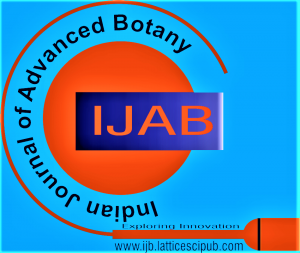![]()
Phenotypic and Biochemical Characterization of Rhizobia Associated with Medicago polymorpha Growing in Rajasthan
Amit Yadav1, Divya Solanki2, Ghanshyam Sharma3, Gunjan Dubey4, Indu Singh Sankhla5
1Amit Yadav, Microbiology Laboratory, Department of Botany, University of Rajasthan, Jaipur (Rajasthan), India.
2Divya Solanki, Microbiology Laboratory, Department of Botany, University of Rajasthan, Jaipur (Rajasthan), India.
3Ghanshyam Sharma, Microbiology Laboratory, Department of Botany, University of Rajasthan, Jaipur (Rajasthan), India.
4Dr. Gunjan Dubey, Assistant professor, Microbiology Laboratory, Department of Botany, University of Rajasthan, Jaipur (Rajasthan), India.
5Dr. Indu Singh Sankhla, Assistant professor, Microbiology Laboratory, Department of Botany, University of Rajasthan, Jaipur (Rajasthan), India.
Manuscript received on 30 September 2022 | Revised Manuscript received on 12 October 2022 | Manuscript Accepted on 15 October 2022 | Manuscript published on 30 October 2022 | PP: 5-11 | Volume-2 Issue-2, November 2022 | Retrieval Number: 100.1/ijb.B2012102222 | DOI: 10.54105/ijab.B2012.102222
Open Access | Ethics and Policies | Cite | Mendeley | Indexing and Abstracting
© The Authors. Published by Lattice Science Publication (LSP). This is an open-access article under the CC-BY-NC-ND license (http://creativecommons.org/licenses/by-nc-nd/4.0/)
Abstract: In present study, a total of 15 rhizobial isolates were isolated from the root nodules of Medicago polymorpha growing in Jaipur and were characterized for their phenotypic, biochemical and plant growth promoting activities. The root nodules of M. polymorpha were elongated, branched and indeterminate. All isolated rhizobia were highly diverse in their physiological traits. Based on colony morphology, all isolates were categorized into six groups. Major group containing 6 isolates (MP1, MP3, MP9, MP10, MP11 and MP13) showed white, opaque, raised, smooth edges, non-gummy, and mucilaginous characteristics. Four rhizobial strains MP3, MP4, MP9, and MP15 showed salt-tolerance up to 3% and were well adapted to high alkaline conditions and exhibited growth in extremely alkaline media (pH 10). Majority of strains showed positive result for IAA production, nitrate reductase and catalase activity. In addition, citrate utilization, ammonia production, phosphate solubilization and cellulase activity were observed in few isolates. In present study, some rhizobial isolates like MP3, and MP15 were very versatile rhizobia that showed high plant growth promoting activities (IAA production and phosphate solubilization) and were also tolerant to high pH and salt concentration. Such type of superior rhizobia can be part of biofertilizers to enhance legume crop productivity in an ecofriendly manner without application of chemical fertilizers. Our study suggested that rhizobial isolates associated with Medicago polymorpha were significantly diverse in their physiological and biochemical parameters.
Keywords: Biochemical, Medicago Polymorpha, Phenotypic, Plant Growth Promoting Activities, Rhizobia
Scope of the Article: Plant Science
